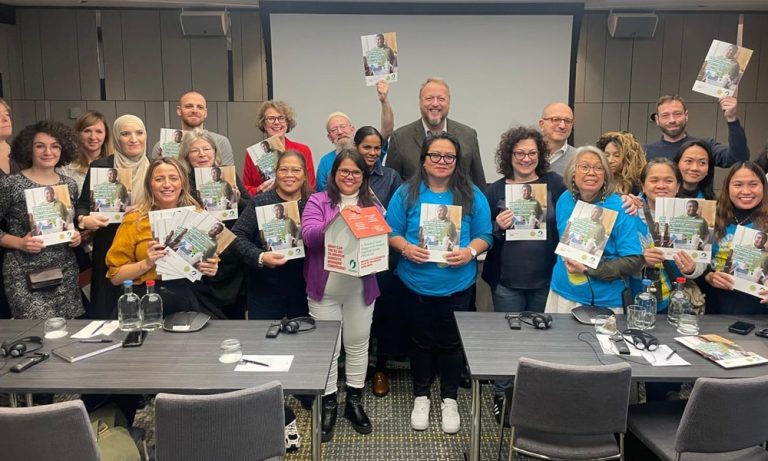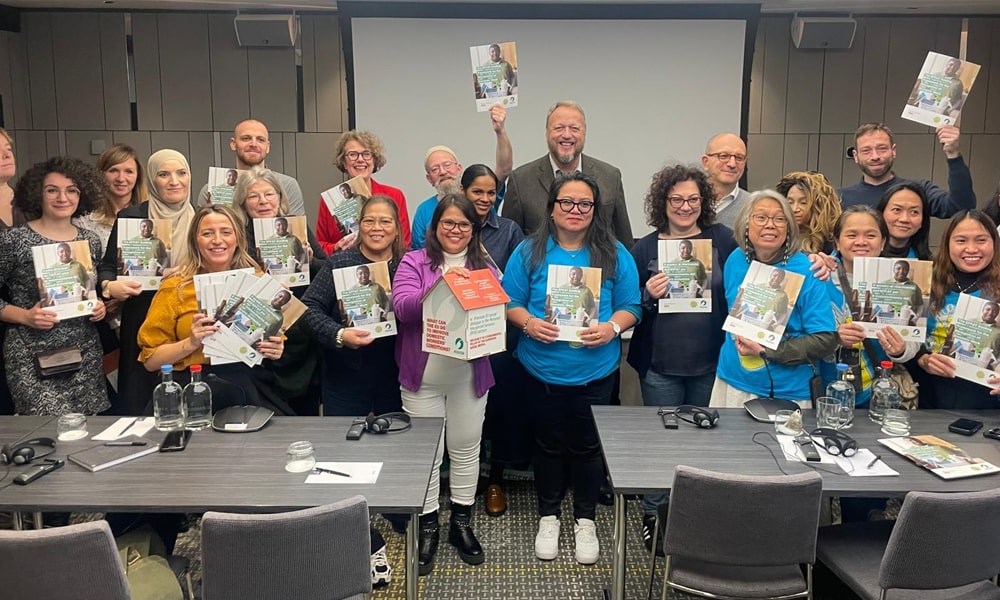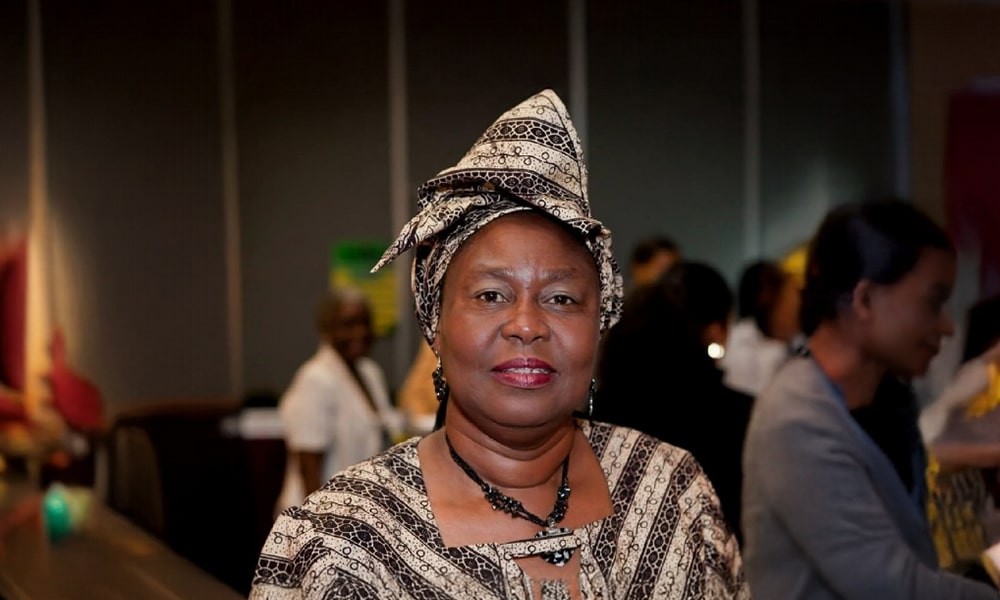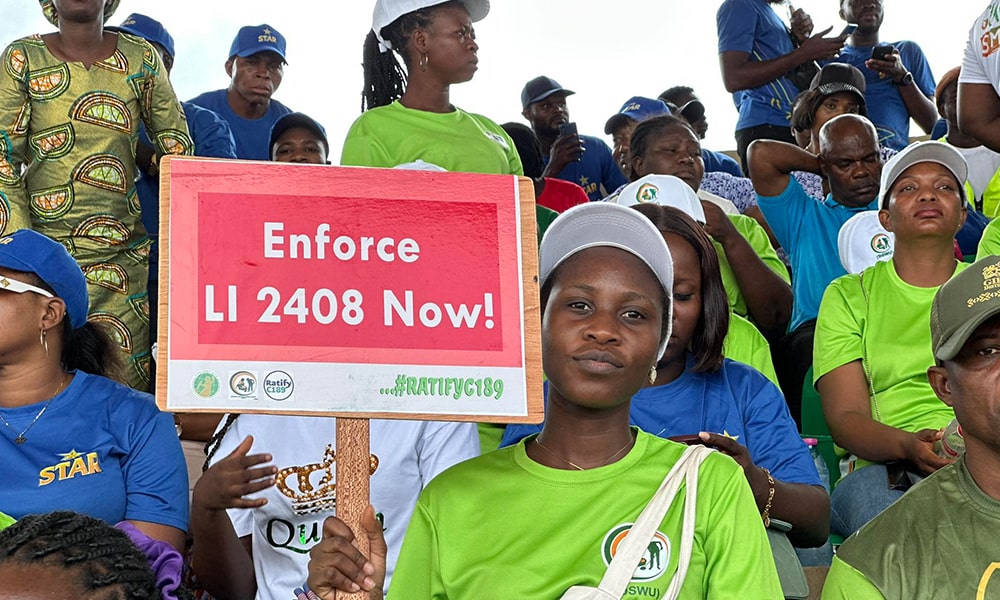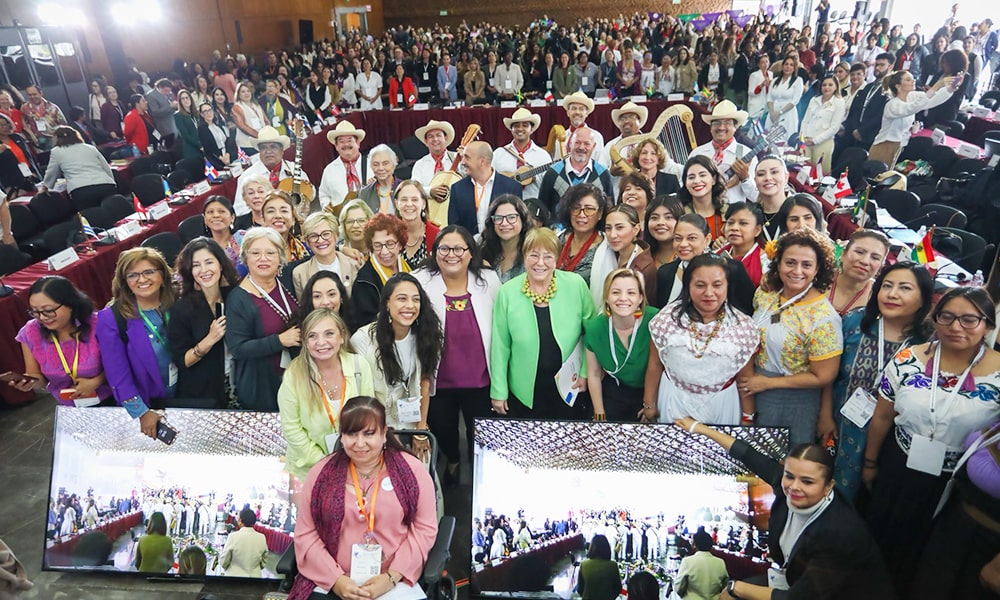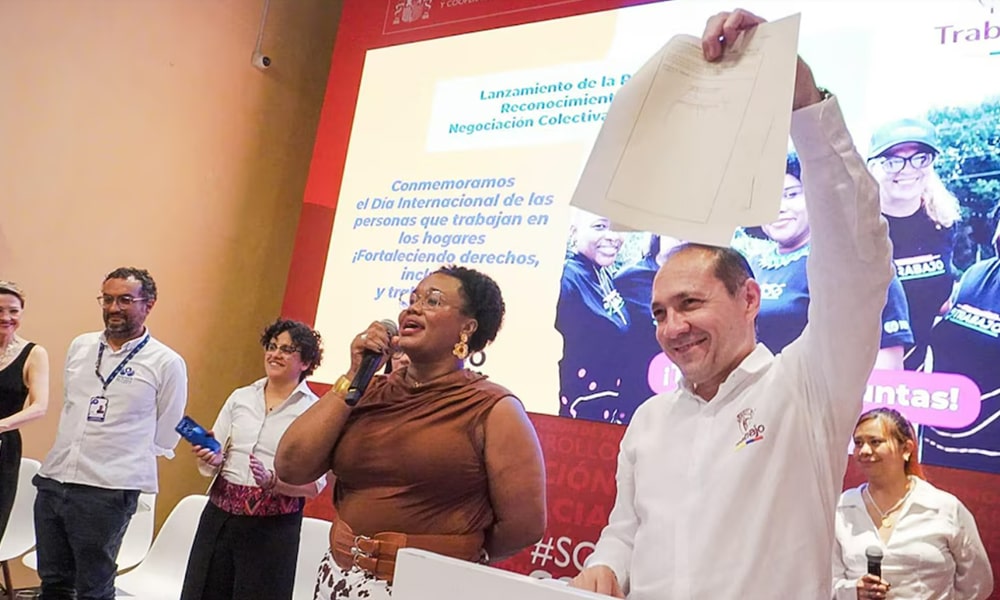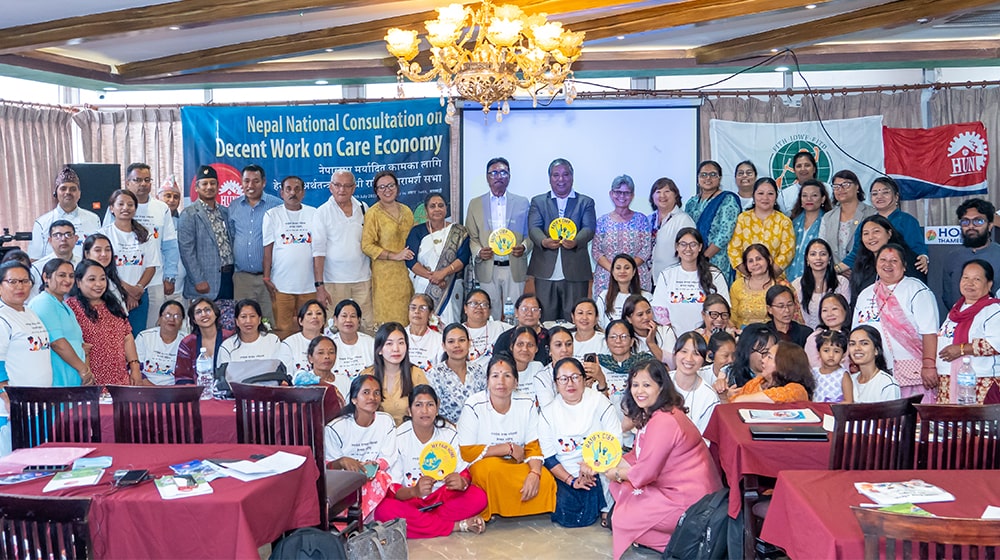
On July 12, nearly one hundred participants gathered for a pivotal national consultation on decent work in the care economy, organized by the International Domestic Workers Federation (IDWF) and its affiliate the Home Workers Trade Union of Nepal (HUN). The event brought together domestic and care workers, trade union leaders, civil society organizations, representatives from the International Labour Organization (ILO), members of Parliament, and government officials—marking the first time that the Minister of Labour joined a gathering with domestic workers. The consultation underscored a powerful truth: care workers, who form the backbone of Nepali society, are still denied full recognition, value, and the rights they deserve. The ILO’s C189 and the 5R Framework must serve as the foundation for an urgent legal and policy change.
The event was opened by Ms. Nirmala Ghimire Dhakal, a domestic worker leader from HUN, and Ms. Sonia George, member of the IDWF Executive Committee and Vice-President of SEWA India—two women whose leadership embodies the growing strength of the care workers’ movement in Asia. Their call for justice and recognition was echoed by several key figures who brought the urgency of the issue into sharp focus. Sonia George emphasized the urgent need to recognize domestic workers as an integral part of the labour force, advocating for their rights at both national and international levels. She pointed out that women constitute the majority of caregivers globally, with their labour often underestimated and underpaid, and asserted that “domestic workers are the ones who are the care workers who respond to most of the care needs in the world”
Nepal’s Minister of Labour, Employment and Social Security, Mr. Sharat Singh Bhandari, set the tone for the day by affirming: “Domestic workers are workers. Domestic workers deserve decent work.” He emphasized the need for legal protection, gender equality, and clear definitions in labor law to formalize employment conditions and ensure dignity for care workers across the country. This was the first time Minister Bhandari had participated in a gathering with domestic workers—an important milestone for the movement.
Building on this message, Member of Parliament and longtime domestic workers’ organizer Ms. Rama Koirala Paudel called for immediate government action to close enforcement gaps and extend protection to the many care workers who remain excluded. “The Constitution of Nepal recognizes labor rights,” she reminded participants, “but in practice, too many domestic and community health workers—often working without pay—receive no support from government programs.” She urged the creation of a dedicated domestic workers law, mandatory employer contributions to the National Social Security Fund, and active empowerment of workers to defend their rights.
From the provincial level, Ms. Bindu Shrestha, former HUN President and now member of the Bagmati provincial parliament, also raised concerns about the situation of community health workers. “The Ministry of Health has agreed to provide allowances,” she said, “but that is not enough. It’s high time we discuss the recognition of care workers.”
Closing the opening session, Mr. Binod Shrestha, President of the General Federation of Nepalese Trade Unions (GEFONT), reflected on the long history of labor movements fighting for visibility and rights. He pointed out that while some care workers employed in institutions may receive respect and protection, those working in private homes often remain invisible and undervalued. He welcomed the government’s announcement of plans to ratify six International Labour Conventions—including ILO Convention 189 on decent work for domestic workers—and called on unions to persist in the fight for recognition and equality.
Putting the ILO’s 5R Framework into Action
Throughout the consultation, the ILO’s 5R Framework—Recognize, Reduce, Redistribute, Reward, and Represent—served as a central point of reference and discussion. Speakers, researchers, and care workers themselves engaged deeply with the five pillars, connecting them to their lived experiences and to the urgent need for legal and policy change.
Ms. Kripa Basnyat, from the ILO Nepal office, provided a detailed explanation of the 5Rs and the importance of defining care work clearly in national legislation. She emphasized the ILO’s commitment to supporting a legal gap analysis in Nepal to align domestic laws with international labor standards. Following her, Ms. Bina Devi Rai, a policy researcher working with the IDWF, highlighted inconsistencies and limitations in Nepal’s legal protections for domestic workers. She pointed to the many barriers these workers face in accessing the Social Security Fund and underscored the urgent need for comprehensive legal reform.
Expanding the discussion to the regional level, Ms. Raina Bhattacharya, IDWF Program Officer for Asia, presented the results of care policy mapping across twelve Asian countries and economies. This research showed that domestic workers play a critical role in the care economy, yet are largely left out of legal protections. “Most governments in the region fail to recognize care as a collective responsibility,” she noted, “leaving families—and especially unpaid care workers and domestic workers—to shoulder an enormous burden alone.”
The voices of workers in the room brought power and clarity to these findings. Domestic and care workers—including community health workers and early childhood educators—voiced the injustices they face due to the lack of recognition of their work. Despite the amendment of Nepal’s Labour Act to recognize domestic workers as workers, concrete implementation mechanisms to protect their labor rights remain largely absent. Community health workers, in particular, are still regarded merely as “volunteers” rather than as workers. They shared their demands using the 5Rs as a framework:
- Recognize domestic work as care work, and acknowledge the skills it requires
- Reduce the burden through paid days off, sick leave, and maternity benefits
- Redistribute care work more equitably across genders and institutions
- Reward care work with fair wages and access to social protection
- Represent care workers by ensuring their right to unionize and participate in decision-making
Global union federations—PSI and UNI-APRO—reaffirmed their commitment to advancing care workers’ rights in Nepal. They stressed the need to move beyond models of volunteerism and toward formal employment with decent wages, training, and legal protections. Organizing community health workers, they emphasized, is key to achieving fairer policies and stronger representation. Closing the event, Mr. Chandra Sagar Lama, President of HUN, underscored the importance of solidarity and coordination among all actors: “We need a united voice. We need to work together.”

